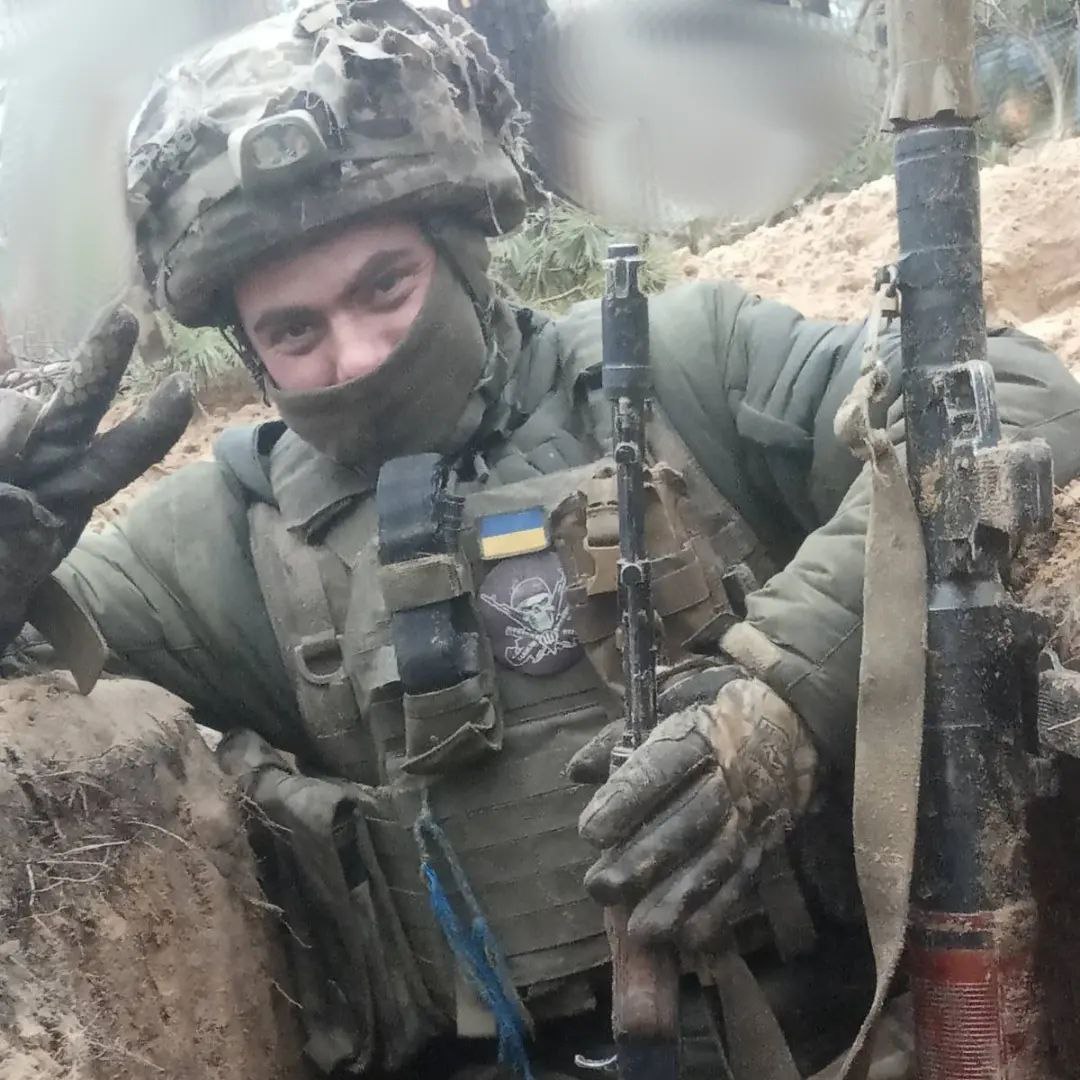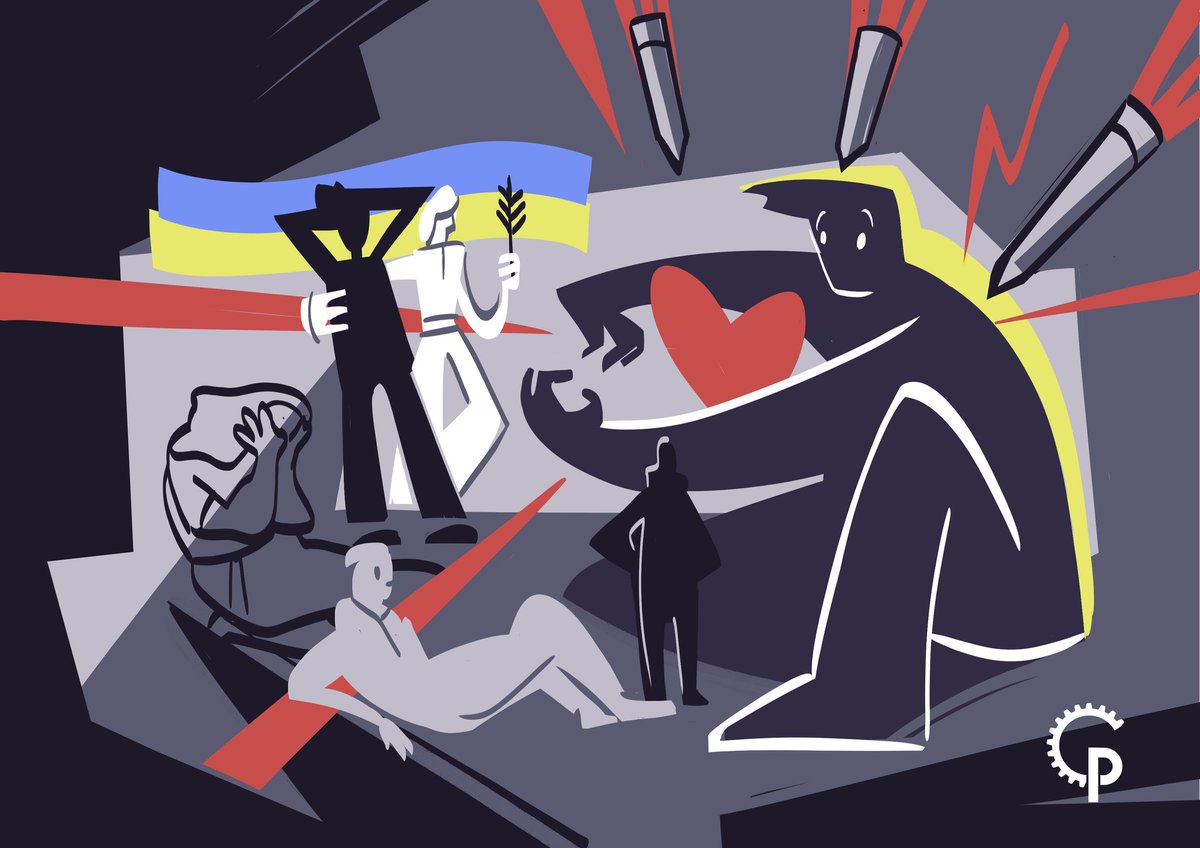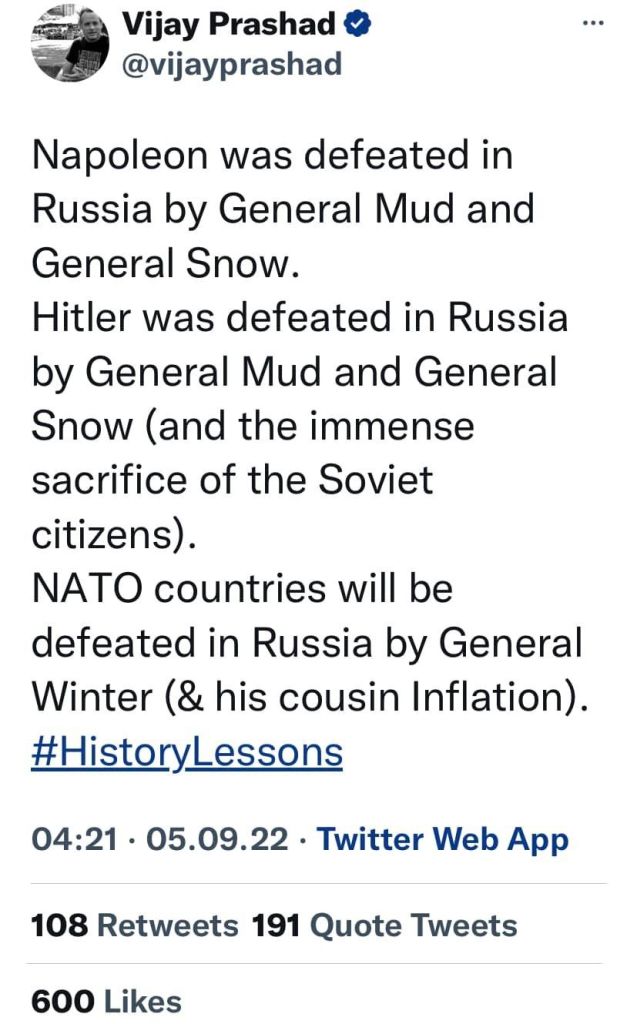On April 19, 2023, the Russian anarchist Dmitry Petrov a.k.a Ilya Leshiy, died in the battle near Bakhmut.
He fought in the Ukrainian army against Russian imperial aggression. His death was confirmed yesterday. 1/9
He fought in the Ukrainian army against Russian imperial aggression. His death was confirmed yesterday. 1/9

Dmitry was a PhD in history, an anthropologist and worked at the Institute for African Studies of the Russian Academy of Sciences.
He visited Kurdistan, co-authored a few books, and co-hosted the Hevale research and media project about Rojava. 2/9
hevale.nihilist.li/about_english/
He visited Kurdistan, co-authored a few books, and co-hosted the Hevale research and media project about Rojava. 2/9
hevale.nihilist.li/about_english/

Dmitry participated in the anarchist movement for many years. He defended the environment, workers' rights, and fought against developers. As an anti-fascist, he fought neo-Nazis on the Moscow streets. 3/9 

Leshiy was an anarchist, but he was friendly and cooperative with socialists, participated in our campaign to cancel Ukraine's foreign debt, and wrote several articles about Rojava for the Commons journal. 4/9
commons.com.ua/ru/authors/pet…
commons.com.ua/ru/authors/pet…
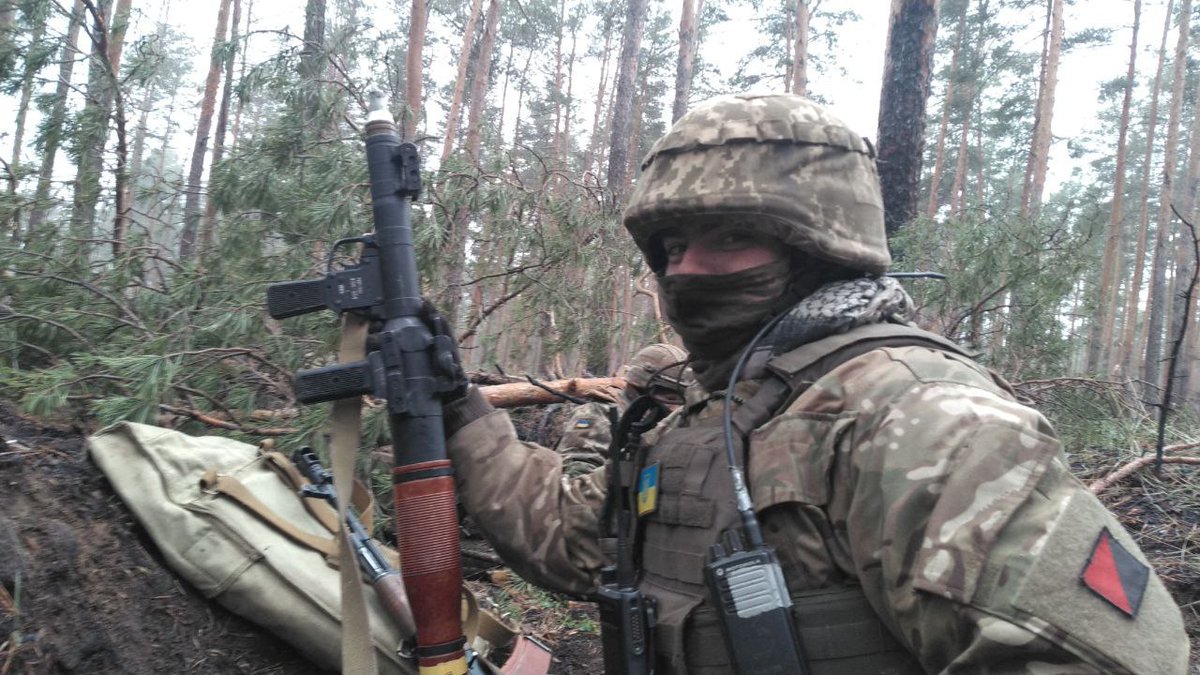
Dmitry participated in the protests in Bolotnaya in Russia 2011, Maidan in Ukraine 2014, and protests in Belarus 2020.
Due to the threat of arrest in Russia, he moved to Ukraine several years ago but continued to participate in the Russian anarchist movement. 5/9
Due to the threat of arrest in Russia, he moved to Ukraine several years ago but continued to participate in the Russian anarchist movement. 5/9
On the first day of the invasion, Leshiy joined an attempt to create an anarchist unit in the Ukrainian army.
He took part in the battles near Svatovo and Kreminna, and died during an attempted counter-attack near Bakhmut. 6/9
He took part in the battles near Svatovo and Kreminna, and died during an attempted counter-attack near Bakhmut. 6/9
https://twitter.com/AlexisDaloumis/status/1629099444074385409
I spoke with Dmitry only a few times, but from the first day of acquaintance, he made the best impression on me — a sincere, honest, friendly, modest person.
Only after his death, I and many other Ukrainian leftists learned about what he did in Russia. 7/9
Only after his death, I and many other Ukrainian leftists learned about what he did in Russia. 7/9
Dmitry was a true internationalist and revolutionary and boldly opposed chauvinism.
He hoped that the Ukrainian resistance would help the Russians and Belarusians overthrow their dictatorships. He died for the freedom of the peoples of Ukraine and Russia. 8/9
He hoped that the Ukrainian resistance would help the Russians and Belarusians overthrow their dictatorships. He died for the freedom of the peoples of Ukraine and Russia. 8/9
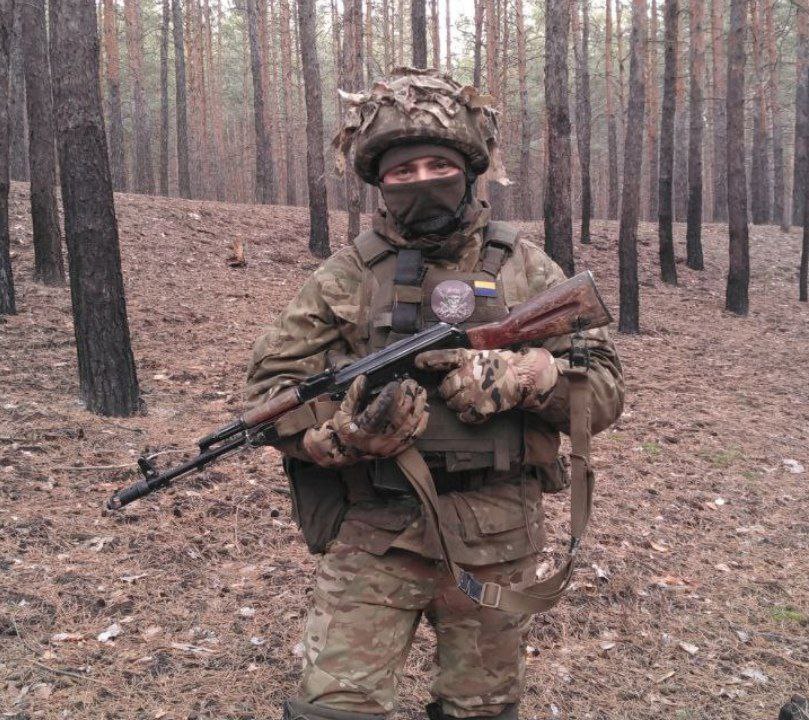
Dmitry was a co-founder of the Combat Organization of Anarcho-Communists (BOAK), which sabotaged railway infrastructure in Russia since the start of the invasion.
He send his last word to them for publication in case he died. 9/9


He send his last word to them for publication in case he died. 9/9
https://twitter.com/Antifa_Entsy/status/1651670212884721665
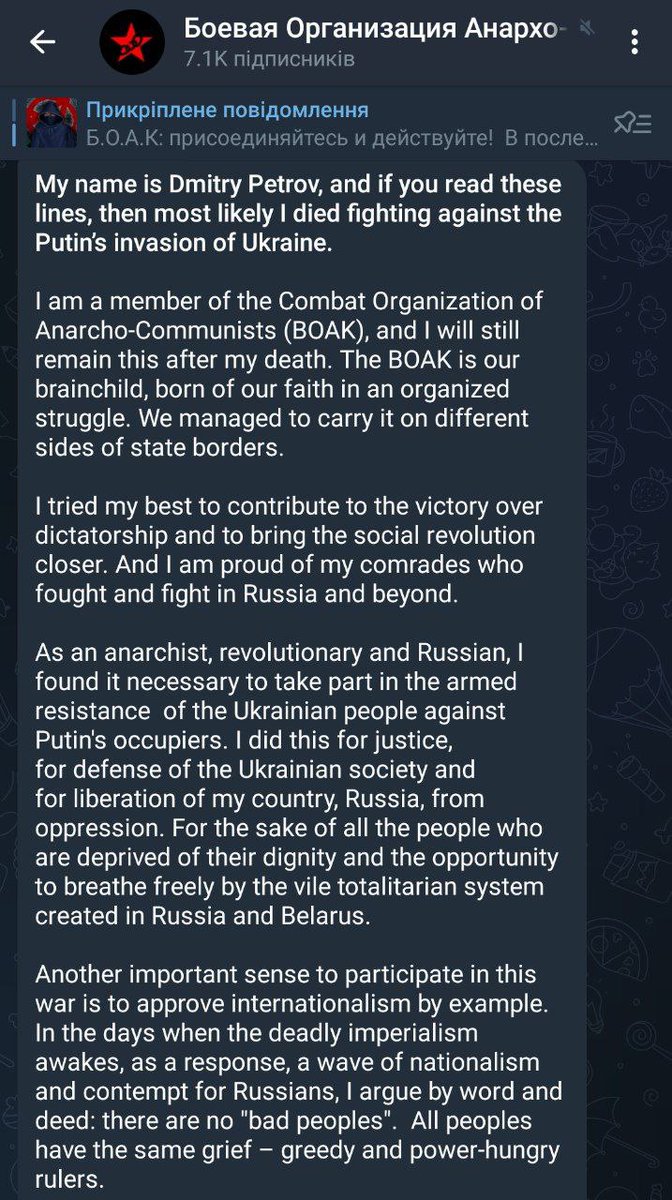

• • •
Missing some Tweet in this thread? You can try to
force a refresh

